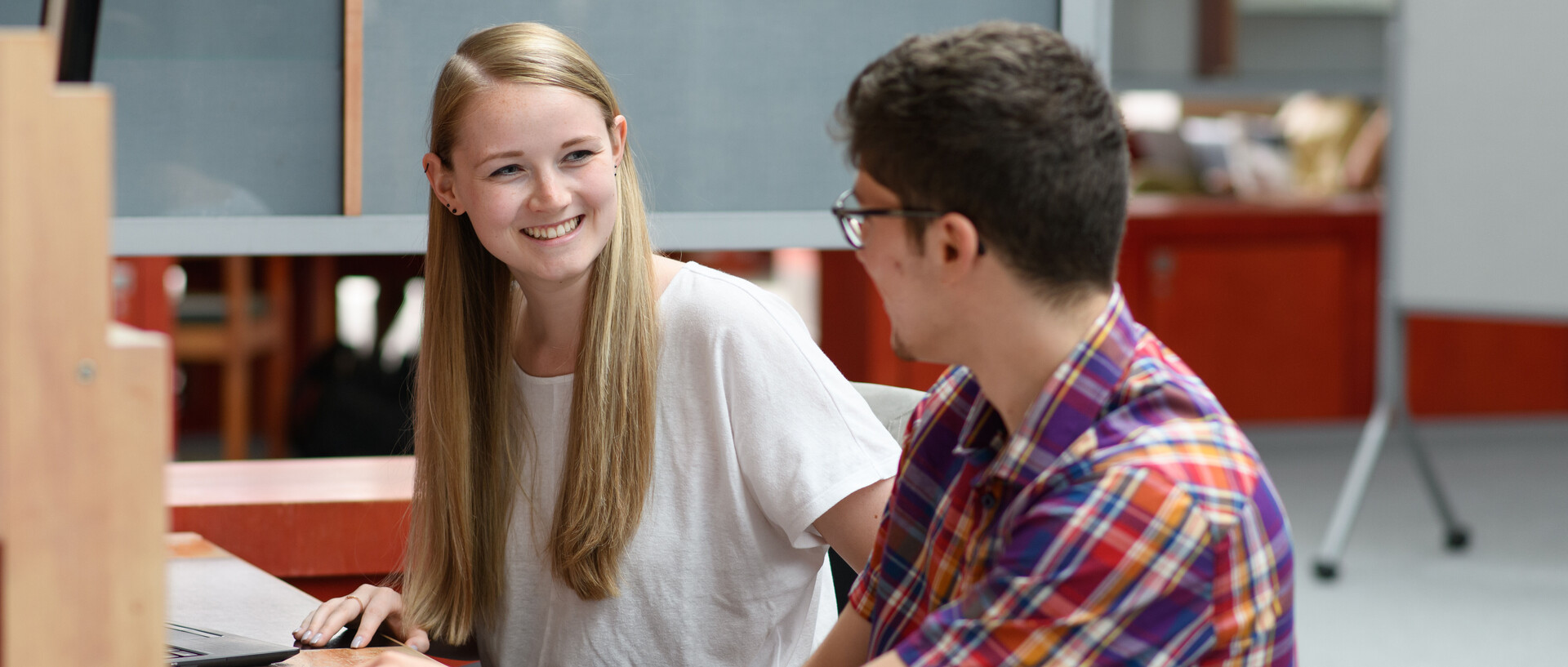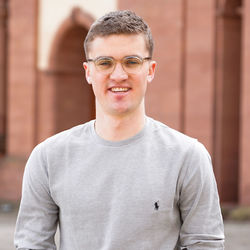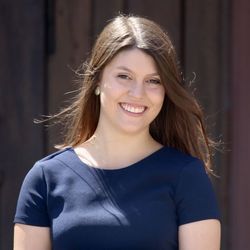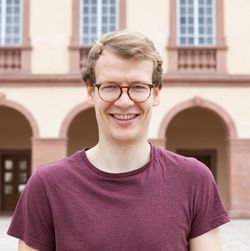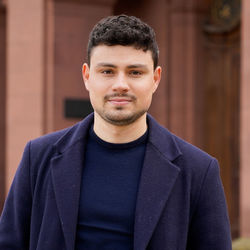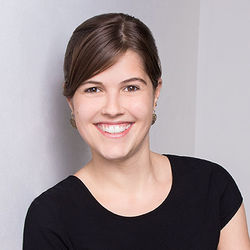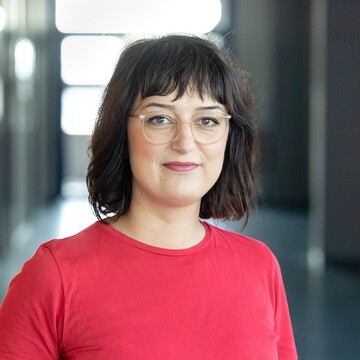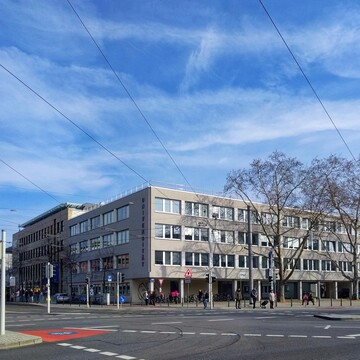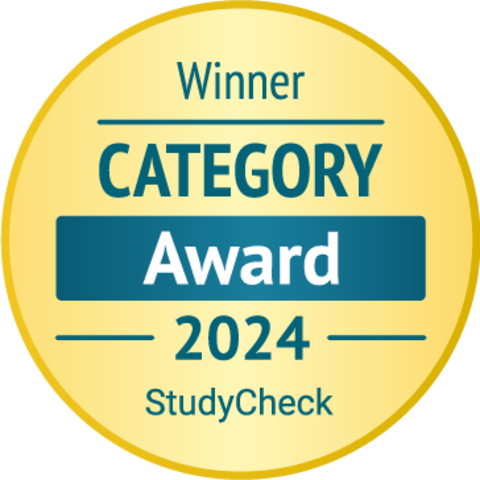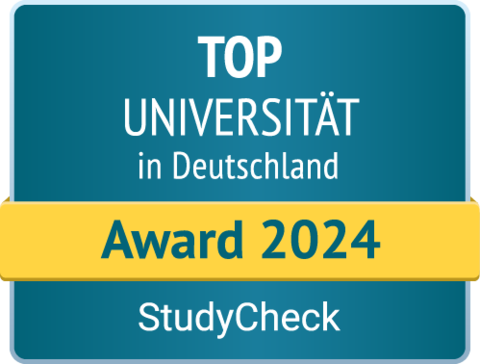Program facts and information
Degree: Bachelor of Education (B.Ed.)
Standard period of study: 6 semesters (= 3 years)
ECTS credits: 180
(70 in Political Science, 70 in a second subject, 19 in Education Sciences, 15 in Teaching Methodology, 6 in the bachelor's thesis)Language of instruction: German, English
Language requirements: This program requires proof or proficiency in English (may be acquired later on).
You can prove your language proficiency if you have taken this subject in school or by taking a language test. For more details, please refer to the information sheet on proofs of language proficiency.
If you are not a German citizen or do not have a German university entrance qualification (Abitur or equivalent qualification), you must submit proof of proficiency in German on C1 level.Program start: Fall semester (September)
Academic calendarSchool: School of Social Sciences
Semester fee: EUR 204.30 (more information)
Tuition fees for international students from non-EU countries: EUR 1,500
Tuition fees for a second degree: EUR 650Program overview
Students of the bachelor’s program in Teacher Education: Political Science study Political Science, a second equally-weighted subject, Education Sciences and Teaching Methodology.
Political Science involves describing and analyzing political reality. How are political decisions made? Which effects do they have? It also covers, for example, regulations governing coexistence, the distribution of power and skills, and approaches to social problems – not just in Germany, but in Europe and across the world.
In the first semester, you attend introductory courses on Political Science, methods and statistics, and the political system in the Federal Republic of Germany. In the following semesters, you attend courses in the three main areas of Political Science: international relations, comparative politics, and political sociology. Choosing an elective module enables you to specialize in one of these areas.
You address the following questions in modules on Teaching Methodology: Which methods can I use to teach pupils about a subject and to develop their skills? Which challenges come with teaching multicultural and multilingual groups?
Courses in Education Sciences cover the basic scientific principles behind teaching and learning, and are complemented by the practical experiences gained during the first school placement (Orientierungspraktikum).
Structure of the bachelor's program in Teacher Education (in German)
Why study Teacher Education: Political Science at the University of Mannheim?
Students in Mannheim are taught by leading political scientists. The program has repeatedly done well in national and international rankings. In particular, the high quality of the research, which has an international focus, and the study environment were praised. Take a look at the rankings here.
The Bachelor of Education program at the University of Mannheim prepares students for a teaching career right from the start and places a focus on teaching linguistically and culturally diverse groups of students. Most students on the program want to become teachers after they graduate. But if you decide during your studies that teaching isn’t for you, you have the option of pursuing a master’s program in a different field. There are many career options outside of schools open to you.
Career opportunities
After completing the program, graduates have a wide range of further education and career options. The traditional career path is working as a school teacher. If you want to become a teacher, you need to pursue a master's program in Teacher Education (Lehramt Gymnasium) to be admitted to the preparatory service (Referendariat). You are then allowed to teach at secondary or vocational schools. Please note that you can only teach at secondary schools if you study the subject combination History and Political Science as well as Economics and Business Administration.
Alternatively, you can build on the skills learned during your bachelor’s program by studying a master’s program in Political Science or Sociology. This opens up a variety of other career options for you. Political scientists work, for example, at universities and research institutions, or in public administration. Potential employers include political institutions such as the Bundestag, state governments, political parties, foundations, trade unions and associations, PR agencies, private companies and in market and opinion research.
Required interests and skills
- be capable of analytical and critical thinking,
- enjoy working with complex texts, theories, and methods,
- have a good level of English proficiency,
- find sociological questions interesting (for example: how do governments make and justify decisions?),
- argue convincingly and like to debate,
- not be afraid of statistics.
- like working with young people and understand their problems,
- enjoy presenting and explaining things,
- be confident,
- be enthusiastic about their subjects and the job, and be able to pass this enthusiasm on to others,
- be able to accept criticism and reflect on themselves,
- communicate in a clear and understandable manner.
Program structure
Module catalog
You can find further details on how the program is structured in the module catalog.Studying abroad
In the teacher education programs, there are diverse and exciting opportunities for studying abroad. The University of Mannheim is part of a global network and is partners with about 450 universities worldwide. The International Office can help you plan a period of study abroad. We recommend that students go abroad during the fifth subject-specific semester. Studying abroad is optional, and is encouraged by the School. Coursework and examinations completed abroad can usually be recognized so that the period of study does not have to be extended.Internships
All students of bachelor's programs in Teacher Education in Baden-Württemberg complete their first school placement (Orientierungspraktikum) during the program. The placement lasts for three weeks, and gives students the chance to gain initial practical experience during their studies.Students at the University of Mannheim attend a block seminar while completing their placement. Both the placement and the seminar usually take place during the semester break before the third semester begins (June/July).
Students can either do their placement at a secondary school (Gymnasium) or a vocational school. The Center for Teacher Education and Educational Innovation can answer your questions on the application process and the format of the placement.
Sample course schedule
This is how your course schedule for the first semester could look like.Continuing Education
Certificate programs
Strengthen your potential, deepen your knowledge, find solutions for challenges we will face tomorrow – there are many good reasons to think outside the box, get to know and try out new things even during your studies.At the University of Mannheim, you can do this in the “Studium Oecologicum” which focuses on sustainability. In our certificate program, you will acquire interdisciplinary expert knowledge which can help you to act ethically and to make holistic decisions.
Language courses
Making language learning easier: No matter if you want to learn Japanese, Hebrew, Spanish or Norwegian, take the Graduate Record Examination Test (GRE), The European Language Certificates (telc) or the TOEFL test – each semester, the University of Mannheim offers language courses and language certificates in more than 16 languages for students and non-university members, online and on campus!Further study
The following degree programs are partly or fully available in English:
Master’s program in Political Science (M.A.)
Master’s program in Sociology (M.A.)
The following degree program is (mainly) taught in German:
Application and selection
At the University of Mannheim, a traditional numerus clausus (within the meaning of a minimum grade required for admission) does not exist. In our selection process, we take numerous criteria into account. For more details, please check the selection statutes (see below). Be bold! Please do not hesitate to contact us if you need advice. We are looking forward to receiving your application!
In our selection process for the Bachelor's Program in Teacher Education: Political Science, we take the following criteria into account:
- the grade average achieved in your university entrance qualification,
- the final grades achieved in Mathematics and English,
- other relevant work experience and extracurricular activities.
German language proficiency
If you are not a German citizen or do not have a German university entrance qualification (Abitur or equivalent school leaving certificate), you must prove German language proficiency at C1 level.Selection statutes
Under “Application and selection” we have compiled the most important selection criteria of the program for you. For more detailed explanations of the selection process and the legally binding requirements of the degree program, please refer to the selection statutes.If the program of study is currently not selective, you will receive a study place if you fulfill all admission requirements and apply in due time and form.
Application
- The application deadline for our bachelor's programs for the fall semesters starts on 1 June and ends on 15 July.

What it's like to study and live in Mannheim
Our Program Ambassadors share their experiences at the University of Mannheim and are happy to help you.

Still not sure where to head and what to study?
We offer additional information and advisory services for prospective students.
